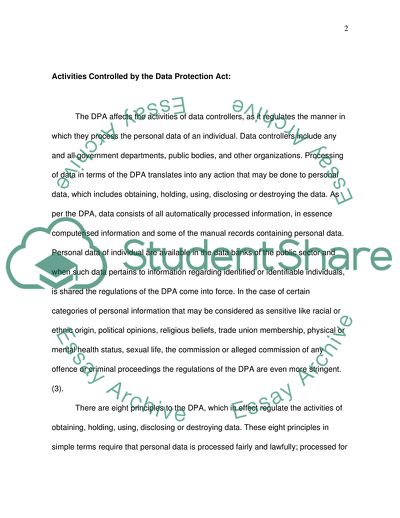Cite this document
(Data Protection Act Essay Example | Topics and Well Written Essays - 2500 words - 1, n.d.)
Data Protection Act Essay Example | Topics and Well Written Essays - 2500 words - 1. https://studentshare.org/law/1711957-data-protection-issues-or-intellectual-property-rights-and-copy-protection-technology
Data Protection Act Essay Example | Topics and Well Written Essays - 2500 words - 1. https://studentshare.org/law/1711957-data-protection-issues-or-intellectual-property-rights-and-copy-protection-technology
(Data Protection Act Essay Example | Topics and Well Written Essays - 2500 Words - 1)
Data Protection Act Essay Example | Topics and Well Written Essays - 2500 Words - 1. https://studentshare.org/law/1711957-data-protection-issues-or-intellectual-property-rights-and-copy-protection-technology.
Data Protection Act Essay Example | Topics and Well Written Essays - 2500 Words - 1. https://studentshare.org/law/1711957-data-protection-issues-or-intellectual-property-rights-and-copy-protection-technology.
“Data Protection Act Essay Example | Topics and Well Written Essays - 2500 Words - 1”. https://studentshare.org/law/1711957-data-protection-issues-or-intellectual-property-rights-and-copy-protection-technology.


